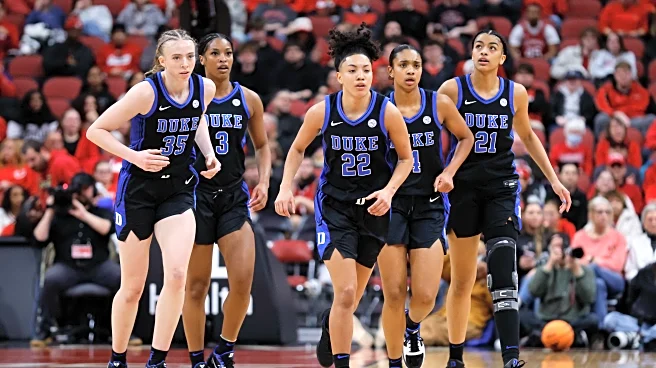What's Happening?
Timothy Mellon, an heir to a prominent banking family, has been identified as the mystery donor who contributed $130 million to support U.S. military personnel during the ongoing government shutdown. The
donation, announced by President Trump, is intended to help cover the salaries and benefits of service members. However, the contribution amounts to approximately $100 per service member, which is significantly less than the $6.4 billion required to pay U.S. troops every two weeks. The use of Mellon's donation may conflict with federal law, as reported by The New York Times, citing sources familiar with the situation. Mellon, a billionaire railroad magnate, was described by President Trump as a 'great patriot' and a 'friend,' though Mellon himself has denied being a billionaire in past communications.
Why It's Important?
The identification of Timothy Mellon as the donor highlights the complexities and legal challenges associated with private contributions to federal operations. While the donation is intended to alleviate financial strain on military personnel during the shutdown, it underscores the inadequacy of private funds to replace government obligations. This situation raises questions about the role of private wealth in public affairs and the potential legal implications of such contributions. The ongoing government shutdown, now one of the longest in U.S. history, continues to impact various sectors, including military operations, and Mellon's donation brings attention to the broader issue of funding and governance during such crises.
What's Next?
The legal ramifications of using private donations to fund military salaries during a government shutdown may prompt further scrutiny and potential challenges. As the shutdown persists, stakeholders, including lawmakers and military officials, may seek alternative solutions to ensure the financial stability of service members. The situation could lead to discussions on legislative measures to prevent similar occurrences in the future and address the broader implications of relying on private contributions for public services.
Beyond the Headlines
The involvement of a private donor in funding military operations during a government shutdown raises ethical and governance questions. It highlights the potential influence of wealthy individuals on public policy and the risks associated with bypassing traditional government funding mechanisms. This development may spark debates on the balance between private philanthropy and public accountability, as well as the long-term implications for democratic governance and military funding.











